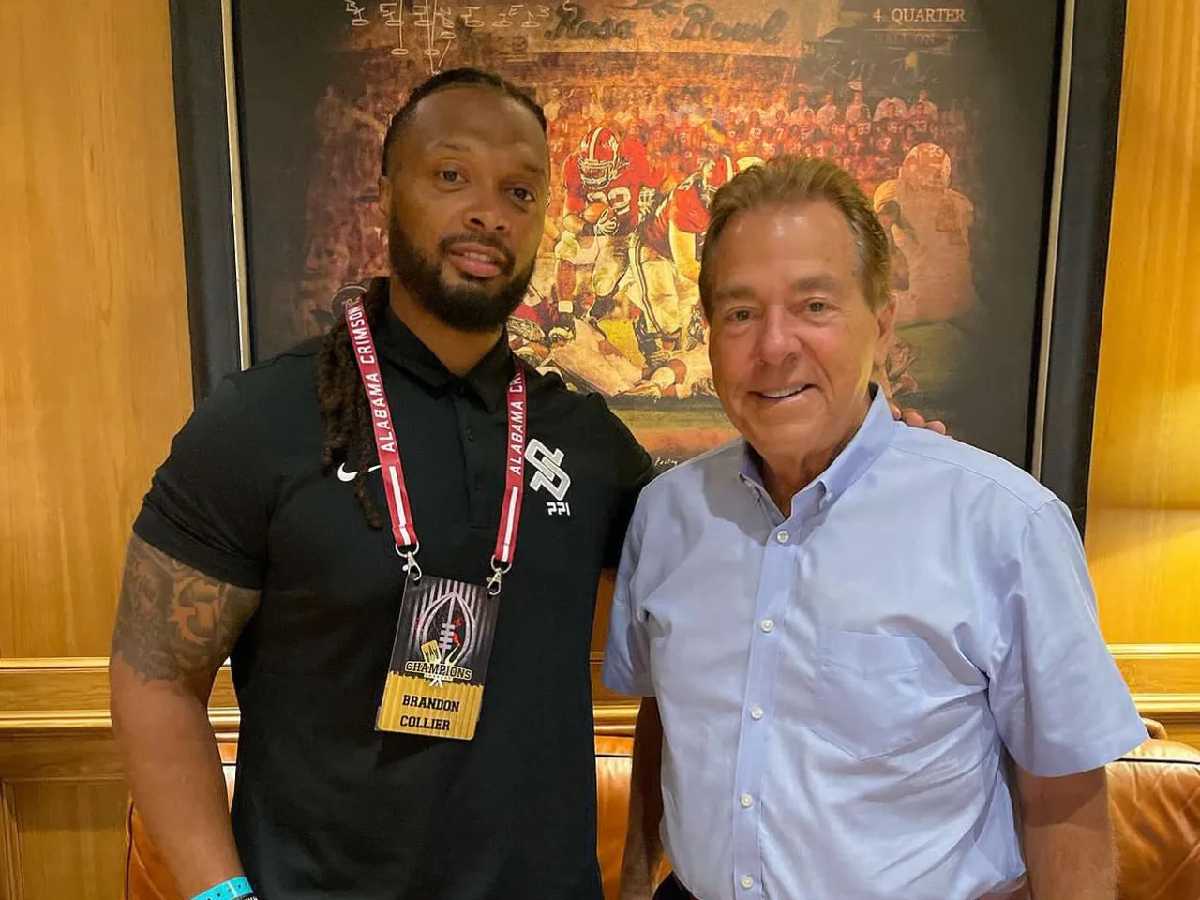How a UMass alum turned Europe into an emerging football recruiting area

By Matt Vautour/UMass
FRANKFURT, Germany — Brandon Collier just didn’t want his football career to be over.
The chain of events that led the former UMass defensive lineman to fill a unique and influential role in college football’s ecosystem stemmed from that simple goal. He just wanted an opportunity to keep playing.
Today, Collier, 38, is the founder and CEO of Premier Prospects International (PPI). He runs American football development camps in Europe and helps identify players who are good enough to earn scholarships to Division I schools.
So far PPI has helped over 100 players land opportunities in America, including some at college football’s signature institutions.
“He’s certainly done a nice job of carving out a niche,” said UMass football coach Don Brown, who has three German players on his roster. “There’s not a school in the country where the coaches are not going to know who he is.”
There was a point when Brown was one of the few who knew who Collier was. Growing up poor in Cleveland, Collier had never left northeast Ohio until he took his recruiting visit to UMass.
His former roommate Mike Douglas was playing in Paris in a European professional league. Collier reached out to him, looking for a chance to extend his career. He signed to play in Austria in 2011.
Collier quickly fell in love with Vienna. Salaries were low, but food and lodging were paid for.
“The experience was incredible. It was almost a paid vacation,” he said. “We didn’t make much money, but we didn’t have to pay for anything and we got a stipend each month.”
He played well enough that the Philadelphia Eagles signed him in 2011. But he got injured in mini-camp and eventually released with a settlement. He signed to play for the Winnipeg Blue Bombers of the CFL for a year before heading back to Europe. He played in Innsbruck and then Frankfurt, Germany, where he tore his ACL in 2016.
“I told myself if I ever get a knee injury, I’m retiring,” he said.
If Collier had been healthy after college, none of this might have happened. Europe was his last resort. If his knee had held out longer, his career might have changed too. But he wanted to stay in Europe, and he wanted to stay around football. The combination doesn’t produce a lot of opportunities. He planned to coach a little and run some camps and see what happened.
Even he didn’t envision what was coming. One of the kids who came to his camp was a big Belgian named Tibo Debaille. Collier looked at the 6-foot-3, 280-pounder. Squinting a little, he saw a potential Division I prospect.
“If he came through now, he’d have gotten a scholarship to Penn State,” said Collier, who now splits his time between Germany and the suburbs of Washington D.C. “I didn’t have as much juice as I do now.”
Debaille wasn’t the only potential gem he encountered. Collier knew they were good enough, but convincing American college coaches to take a chance was a different challenge. So he took Debaillie and a handful of others to the U.S. If he couldn’t get coaches to come to Europe, he’d bring the European prospects to them.
Debaille landed at Towson and still plays for the B.C. Lions of the CFL. Julius Welschoff, a German DL, signed with Don Brown, who was then the defensive coordinator at Michigan. Suddenly this wasn’t a temporary career anymore.
“Every year it’s gone up and up,” said Collier, who started by working out of his home in the suburbs of Frankfurt, Germany.
Outside of North America, no country loves American football more than Germany. In addition to supporting teams in the World League of American Football and NFL Europe, tickets for the NFL game in Munich last year and two games in Frankfurt this year were in huge demand.
“Ever since World War II, American Football has been over here. So it’s been growing over here a long time and in Germany alone, there are over 300 different youth clubs,” Collier said. “That’s why it’s so much more advanced.”
The explosion of streaming television has helped too. In addition to the two free games on German television every week, fans can watch every NFL game and dozens of college games every week.
“The NFL is noticing it. The NFL ain’t wasting their time over here. They see the numbers,” Collier said. “The game is growing. I’m happy to be one of the leaders of the pack in this and kind of found a niche that no one has really tapped into.”